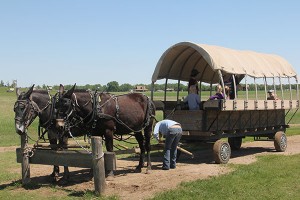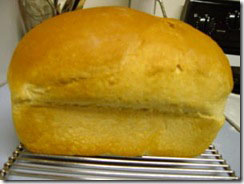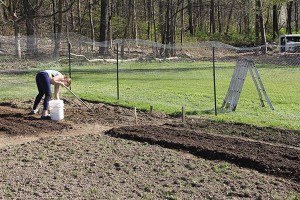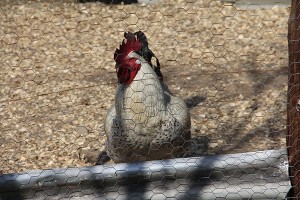 As a culture we tend to live in the moment. While in one sense this is not a bad thing, when living in the moment means not thinking about potential outcomes in our future, we are at risk of leaving our children ill-prepared to meet their future.
As a culture we tend to live in the moment. While in one sense this is not a bad thing, when living in the moment means not thinking about potential outcomes in our future, we are at risk of leaving our children ill-prepared to meet their future.
History shows that disasters do happen, and when they do, will future generations have the skills they need to weather those disasters? I have heard so many people say, that will never happen…. Perhaps not in our lifetime, but eventually? The odds are against us.
Most importantly will future generations have enough skills they need to survive, or will we continue to let the conveniences of the present, allow us to forget basic skills that our ancestors needed to survive.
Where to Start
All it takes is a look around your house to think about all the things you take for granted. Could you make them if you had to? Have you ever seen anyone weave cloth, spin wool, or sew by hand? Could you bake a loaf of bread or even better, would you know how to make a wood fire oven in which to bake a loaf of bread?
Sure a fair number of us can obtain a sewing machine and follow a pattern to make clothing, and to many that is what they think of when making clothes. But before there was electricity, clothes had to be sewed by hand. And before we had access to manufacturing, someone had to weave the cloth and spin the wool before it could even be made into an article of clothing.
Fortunately there are still a few who keep these skills alive, but not nearly enough. These skills should not be forgotten because there will come a day, when they are needed again. There are dozens of skills like these, and if every homesteader and other people concerned about our future learned one or two of these skills, we could build a more certain future for our children and their offspring.
Learning Lost Skills is not enough
 Whether you learn how to save seeds, provide your own dairy for your family or how to tat on a tatting shuttle, it is not enough to just learn the skill. Because these skills are no longer “necessary” for survival, there is a responsibility to pass them on to the next generation. Even more importantly is to pass the skills onto those who will not only use them but who will pass them on as well.
Whether you learn how to save seeds, provide your own dairy for your family or how to tat on a tatting shuttle, it is not enough to just learn the skill. Because these skills are no longer “necessary” for survival, there is a responsibility to pass them on to the next generation. Even more importantly is to pass the skills onto those who will not only use them but who will pass them on as well.
Sure we do not “need” them, but can any of us say with certainty that they will never be needed again? As a culture we have put all of our eggs in one basket and learned to depend on industry and technology to provide for our needs. This system is very fragile, far more fragile than any of us realize right now. One major disaster that interrupted our power supply, communication, or transportation, could send us back to a time where we would have to depend on these very same skills. We do not have to wonder IF it will happen, as much as asking when it will happen.
Skills to Consider
 There are so many skills you could take as your own, do you like to sew, cook, work in the garden, make things? There are enough lost or endangered skills so that it is not hard for everyone to find something they would enjoy.
There are so many skills you could take as your own, do you like to sew, cook, work in the garden, make things? There are enough lost or endangered skills so that it is not hard for everyone to find something they would enjoy.
Gardening – Not just how to put things in the garden and grow them, but how to propagate, save seed, build stronger varieties of plants, as well as how to build the soil and grow food year around.
Preserving Food – There is a lot to choose from, perhaps you might want to learn the art of fermentation, or preserving food without electricity. Salting and drying meat, dehydrating fruits and vegetables, building and using a root cellar. The list goes on.
Woodworking – Learn how to make your own furniture, fence posts, and tools.
Blacksmithing – This is another dying art and one we can ill afford to lose. The need to make our own tools and other items will require such skills.
Hunting and fishing – While these skills are alive and well, the ability to find food where there may be no deer or other large animals is not so common. Do you know how to build a rabbit snare, can you make a fishing pole out of materials you have on hand or can forage for. More importantly do you know how to take care of the animals you kill, currently most leave that for the butcher to do.
Sewing – There is so much more to sewing than just putting two pieces of cloth together. Where did your ancestors get their materials and what did they use for thread and a needle? Could you raise sheep, shear them, clean the wool and spin it? And then take it and create garments out of it? Do you know how to make leather by tanning the hides?
This is just a start on some of the skills you could learn, how about foraging, or cutting your own firewood without gasoline or electricity? Building an outhouse or perhaps smoking your own meat. Making your own candles or soap from the materials you have on hand or even washing your own clothes without out a little tablet that you drop into a machine and then turn on the on button.
What skills will you learn and how will you pass them on?

Leave a Reply